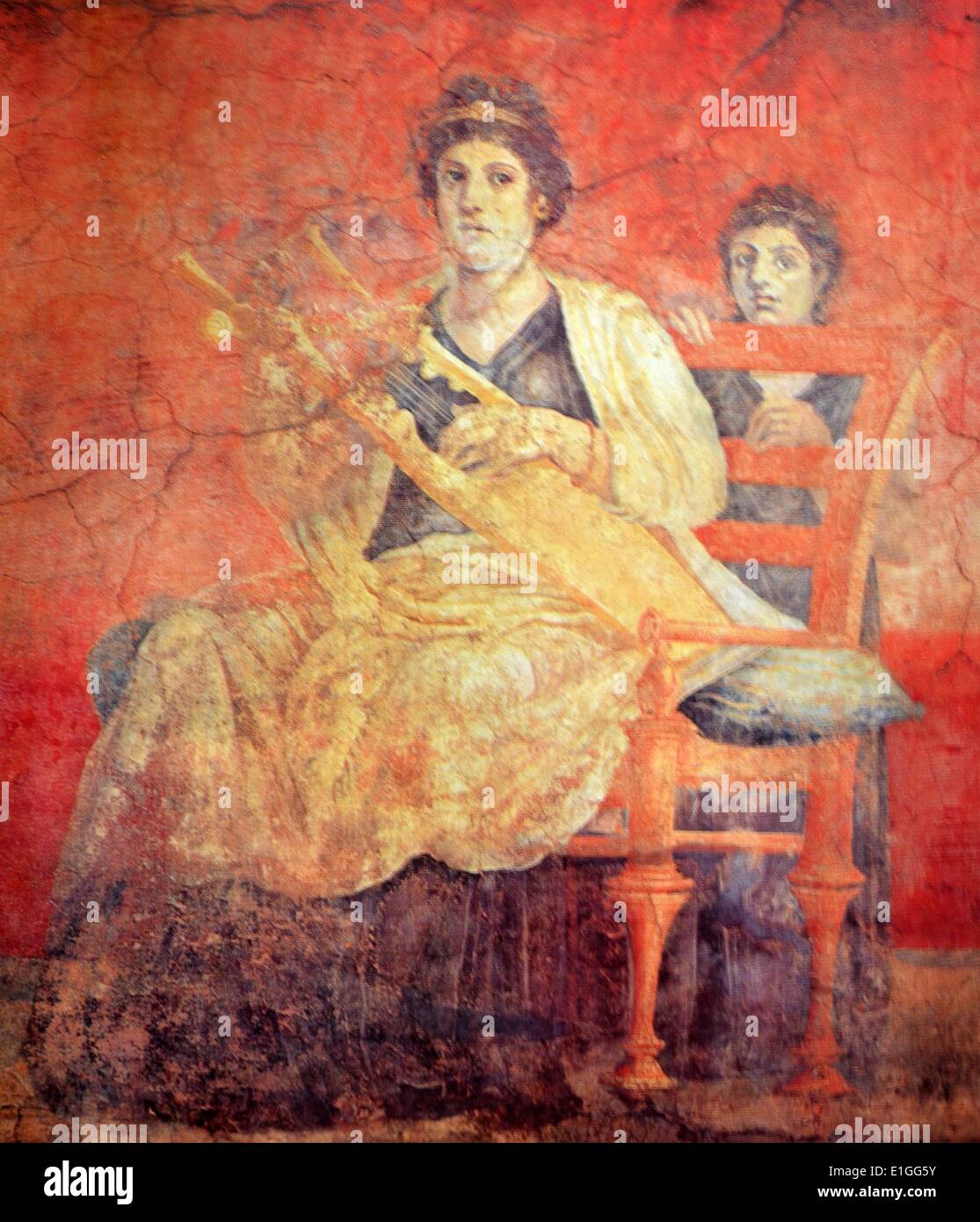A Roman fresco, discovered in Pompeii, depicits a woman seated on a bronze chair, with a back, playing a Greek musical instrument called a Kithara. Chairs with a back for the Romans was a symbol of dignity or respect, reserved for high officials or woman of rank (the ceremonial use of thrones a vestige of this tradition) such as the woman in this fresco. Dated 50 B.C.

RMID:Image ID:E1GG5Y
Image details
Contributor:
World History Archive / Alamy Stock PhotoImage ID:
E1GG5YFile size:
60 MB (3.1 MB Compressed download)Releases:
Model - no | Property - noDo I need a release?Dimensions:
4242 x 4944 px | 35.9 x 41.9 cm | 14.1 x 16.5 inches | 300dpiDate taken:
19 October 1904Photographer:
WorldHistoryArchiveMore information:
This image could have imperfections as it’s either historical or reportage.
A Roman fresco, discovered in Pompeii, depicits a woman seated on a bronze chair, with a back, playing a Greek musical instrument called a Kithara. Chairs with a back for the Romans was a symbol of dignity or respect, reserved for high officials or woman of rank (the ceremonial use of thrones a vestige of this tradition) such as the woman in this fresco. Dated 50 B.C.